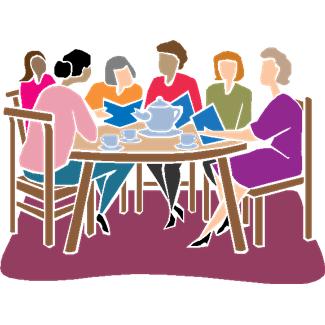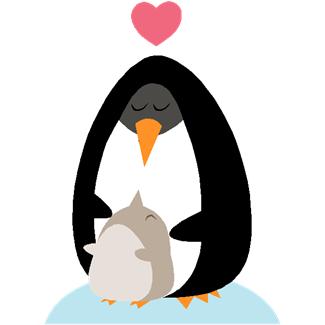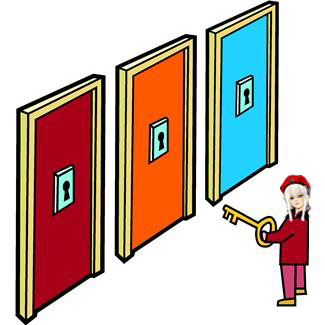Coaching For Experts: A Resource For Moms And Their Daughters
COACHING FOR EXPERTS: A RESOURCE FOR MOMS AND THEIR DAUGHTERS (Issue 4)
by Diane Gold
I wanted to talk about how prudent it is to consider a coach, no matter how much education we have. Often, experience, rather than formal education, can make a great coach.
It is brave for us moms to consider being coached. Why? Because we are supposed to be experts, know how to do it, and getting a coach could negate our perfection. Or would it show our willingness to grow and evolve? Of course, I think the second.
It is fairly common for athletes and musicians to work with a coach for the length of their careers. As Atul Gawande mentions in his article, Personal Best, in the New Yorker, coaches can be our extra set of eyes (in the case of Gawande, himself, who did cardiac surgery) or ears (as Itzhak Perlman says his wife is for his music performance). What stops some of us deemed “experts” from obtaining a coach in our field are (1) ego, believing we are the queen of wisdom and highest authority on a subject (like motherhood) and (2) exposure, not willing for another to watch over our shoulders and see our mistakes.
 MOMS = EXPERTS
MOMS = EXPERTS
Moms fall into the category of experts. They have experienced growing a child inside the body and giving birth. They have made decisions about the environment of their child which require lots of rapid judgment calls. Since the road to mastery is through repetition, moms get their expert label. When they bond with other moms in social conversations or mastermind groups, the benefit each gets from the other’s stories is informative and helpful. Although it is not coaching, many techniques are passed on through word of mouth (or electronically through webinars and group video calls).
Almost as infrequently as you hear about doctors getting coaches, how often do you hear that a mom is going to get coached on parenting? What is fairly common is psychological counseling or psychiatric services. Neither of these is the same as coaching. The therapist or counselor may advise. The coach, on the other hand, comes up with action steps and motivates the client for immediate action and future use.
More often, families wait until their behaviors get so stretched out of their comfort zone that dysfunction sets in, before doing something about it. In more traditional cultures, getting a coach is deemed inappropriate because like Vegas, what goes on in the home stays in the home and tradition teaches that it is wrong to discuss home matters outside the home. More modern cultures accept coaching and counseling in more areas than sports, music or severe mental issues and recognize its merit.
 COACHES AS PROFESSORS
COACHES AS PROFESSORS
In my mother’s day, it was unheard of to need a coach whether for a mom or a daughter (and Mom had a degree in psychology and I frequented a therapist, which was uncommon and thought of as drastic). In modern days, we still have a stigma around the proactive decision to go for help and still think of the need as admission of failure to perform well or lack of prowess. If we thought of coaches or counselors as mentors or professors, the stigma would disappear.
Most moms would never consider finding a coach for themselves, especially for parenting or communicating. They, along with everyone in the United States for the past 50 years, know about the therapist, the psychologist, the psychiatrist. But, the coach? That’s only for sports and music, right? But let’s get back to experts.
It is common to have a scholastic team to support us during our PhD work. We have our own personal advisors who walk with us as we analyze our subject and write our thesis. In order to differentiate between an expert and an amateur, we get an advanced rating and are proud to place a PhD or a DVM on our wall. We may choose more study, emphasis on another subject or an intricate part of the same subject.
What we don’t do, yet, is keep a coach once we graduate with our special diploma:
a. because we have just finished 15 to 20 years of training, and we are tired of being evaluated.
b. because we are under the illusion that reaching black belt status means we have reached the top. In fact, such a designation signifies the beginning of a long-term study, the achievement of basic understanding and having absorbed 10% of a subject rather than its mastery.
c. because our egos, in a similar manner, want us to be the authority now that we have worked so hard and are no longer the scrutinized one, but the scrutineer.
How many times have we, as moms, resented our own moms’ putting their two cents in? Maybe when we were setting parameters for our daughters or teaching them values, having our moms step in was not to our liking.
 Having our moms invade our territory is akin to how our daughters feel about us, at times or all the time. I remember the territoriality reversed, one day, when I tried to give my mom driving directions from her suburban home to a New York City location near my New York City apartment. (Of course, she had been nearby hundreds of times, but I knew exactly where she was going and knew current construction and thought I would offer help.) The instructions were refused, politely, because my mom was protecting the domain of expertise her husband had. She felt challenged on his behalf such that her acceptance of my help might minimize his expertise and, in turning down the directions, said something that paraphrased like, “Oh, let’s leave it to your stepfather; he’s an expert at that.” I understand completely because he was one of her heroes and they held each other on mutual pedestals.
Having our moms invade our territory is akin to how our daughters feel about us, at times or all the time. I remember the territoriality reversed, one day, when I tried to give my mom driving directions from her suburban home to a New York City location near my New York City apartment. (Of course, she had been nearby hundreds of times, but I knew exactly where she was going and knew current construction and thought I would offer help.) The instructions were refused, politely, because my mom was protecting the domain of expertise her husband had. She felt challenged on his behalf such that her acceptance of my help might minimize his expertise and, in turning down the directions, said something that paraphrased like, “Oh, let’s leave it to your stepfather; he’s an expert at that.” I understand completely because he was one of her heroes and they held each other on mutual pedestals.
How many times have we, as moms, resented our own moms’ putting their two cents in? Maybe when we were setting parameters for our daughters or teaching them values, having our moms step in was not to our liking.
Having our moms invade our territory is akin to how our daughters feel about us, at times or all the time. I remember the territoriality reversed, one day, when I tried to give my mom driving directions from her suburban home to a New York City location near my New York City apartment. (Of course, she had been nearby hundreds of times, but I knew exactly where she was going and knew current construction and thought I would offer help.) The instructions were refused, politely, because my mom was protecting the domain of expertise her husband had. She felt challenged on his behalf such that her acceptance of my help might minimize his expertise and, in turning down the directions, said something that paraphrased like, “Oh, let’s leave it to your stepfather; he’s an expert at that.” I understand completely because he was one of her heroes and they held each other on mutual pedestals.
I can also recall a similar attitude on my part when my mom was giving me advice. I felt challenged because I wanted to do”it” my way.
THE SOLUTION
So what’s the solution to closing the gap between being an expert and being an expert who can use a coach? Like anything else, behavior and social attitude change take time. The more commonplace it becomes for doctors, lawyers, teachers, and, yes, moms, to get coached and share their stories in hopes of getting constructive criticism to make them better, the more we are acclimated to the idea that we are only as expert as our current training, and coaching is a good and fruitful idea.
Having a coach for moms could be the next fiery niche. What if we could discuss how to approach our daughters when they consistently said they didn’t want to talk about their recurring problems with a professional? Or if we knew how to show our daughters our concern over their weight habits without their seeing us as judgmental, how great would that be? Fleshing out these types of situations can help us personally and for our daughters.
It is important to realize that getting coached can make you better. Finding a coach doesn’t mean you have failed. It shows you are open enough to look for continued excellence in yourself and are not afraid to take steps to achieve it. At all costs, if you resist the urge to defend yourself, you might excel exponentially.
FIVE ITEMS THAT MAY COME UP IN YOUR COACHING SESSION
Here are five ways a coach might help a mom.
1. A coach could point out ways the mom forces her will on her daughter. Sometimes, it is hard to see what we do because we are involved in it.
2. A coach could point out easily how the mom is using language that antagonizes, humiliates or defeats her daughter and causes her to close up, give up or become distant.
Well, you might say, can’t we look in a mirror and do these things? Yes, but when a professional coach observes and speaks, we are more heavily impacted. It would be hard to justify how this objective observer could be calling shots that don’t exist.
3. A coach could point out how the mom asks the daughter to behave in a certain way, but acts the opposite way herself. Sending double messages, “ Do as I say, not as I do,” is a no, no. Most of us, as adults, find it hard to remember how we felt as kids.
4. A coach could point out sensitivities in our daughters that we might not even be aware of: how nicknames hurt, how low self-esteem prevails when mom compliments daughter, how low grades sting. The coach is objective, an extra set of eyes and trained to bring out your best.
5. A coach could facilitate realization, creativity, personal development, family development. These are why you thought about a coach in the first place.
CONCLUSION
Whenever we jump into a situation and truly immerse ourselves in new training, we come to new understandings. Whether we need a new stereo and have to research what we can buy or we take a course in human communication; whether we join a local forum to discuss mom and daughter issues or we start a physical fitness regime as a catalyst for our daughters; we grow and learn. We always learn. So, it should make perfect sense that moms need coaches, even though moms, by experience, are supposed to be experts.
What makes us experts is not so much that we have begun a journey of knowledge. It is that we are willing to become coachable because we have discovered that we can always learn more. That wisdom shows true expertise.
________
Does any of this strike you as familiar? The fact that experts don’t get coached for ego’s sake? It is time to put the pride where it belongs and better ourselves for our daughters. If this involves coaching, good. If not, also OK.
YOUR FEEDBACK
If any of you have come across any of the five points above in your conquest to be the best mom for your daughter, please share your stories by commenting below.


 1) Watch Our Language: Yes, this one is painfully obvious, but not always as easy as we think. Be careful about the nicknames. It may seem silly, but I can tell you it is brought up over and over again in therapy sessions. Save yourself the money and choose a name that is healthy and appropriate!Try to curb your appearance-related comments. I know this is not going to eliminate every comment regarding appearance and there may even be times when a, “Wow! You look amazing!” is totally appropriate (shall we say prom night?), but on the whole, ensure that your focus is on your child’s character and accomplishments. Try this on for size, “You must feel great about [accomplishment, ex.: getting that award]. That shows real [character trait, ex.: courage].” After all, isn’t that what we really care about?
1) Watch Our Language: Yes, this one is painfully obvious, but not always as easy as we think. Be careful about the nicknames. It may seem silly, but I can tell you it is brought up over and over again in therapy sessions. Save yourself the money and choose a name that is healthy and appropriate!Try to curb your appearance-related comments. I know this is not going to eliminate every comment regarding appearance and there may even be times when a, “Wow! You look amazing!” is totally appropriate (shall we say prom night?), but on the whole, ensure that your focus is on your child’s character and accomplishments. Try this on for size, “You must feel great about [accomplishment, ex.: getting that award]. That shows real [character trait, ex.: courage].” After all, isn’t that what we really care about?
 The good news about this story is two-fold: we can figure out what we want, how valuable it is to us and what we are willing to give up to achieve it and the wish collector who leads us to contemplate our objective is within us. It is we who get to decide on our most precious goal, although we might want to keep it small enough so that we can succeed at it small increments at a time.
The good news about this story is two-fold: we can figure out what we want, how valuable it is to us and what we are willing to give up to achieve it and the wish collector who leads us to contemplate our objective is within us. It is we who get to decide on our most precious goal, although we might want to keep it small enough so that we can succeed at it small increments at a time. order to reach our ONE WISH, which is the path we choose for right now, we must consider what is most important to us. There is no rush, so we need proceed at our own pace. As long as we don’t procrastinate or consistently stray away from a decision through distraction. Writing down ideas helps a lot. Every time we cross one off or delete an idea, we are one step closer to having that one wish present in our mind. Once we have “it,” we can take a tiny sliver of an action that will take us a centimeter closer to achieving “it.” Big steps are OK, but we must be polished swimmers to jump into deep ocean. Most of us can do massively well by first stepping off the sandbar and proceeding slowly. Please be patient as I outline steps for finding the right wish for you now. They may seem easy and obvious, but going through the exercise of writing them down and proceeding one at a time builds momentum and keeps us directed.
order to reach our ONE WISH, which is the path we choose for right now, we must consider what is most important to us. There is no rush, so we need proceed at our own pace. As long as we don’t procrastinate or consistently stray away from a decision through distraction. Writing down ideas helps a lot. Every time we cross one off or delete an idea, we are one step closer to having that one wish present in our mind. Once we have “it,” we can take a tiny sliver of an action that will take us a centimeter closer to achieving “it.” Big steps are OK, but we must be polished swimmers to jump into deep ocean. Most of us can do massively well by first stepping off the sandbar and proceeding slowly. Please be patient as I outline steps for finding the right wish for you now. They may seem easy and obvious, but going through the exercise of writing them down and proceeding one at a time builds momentum and keeps us directed.










